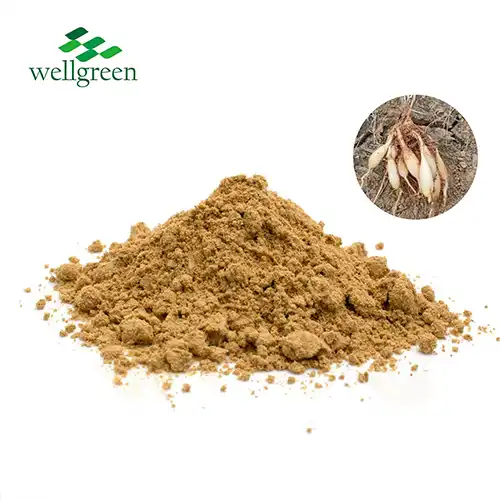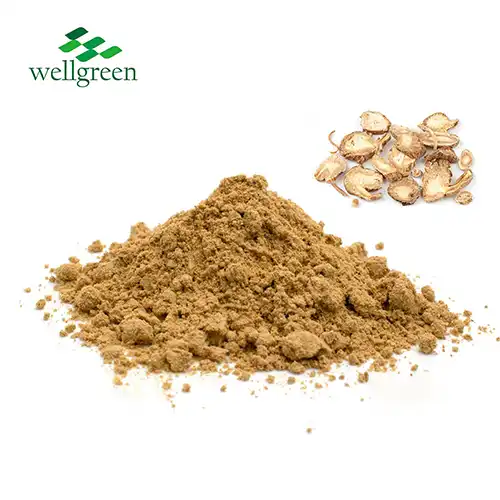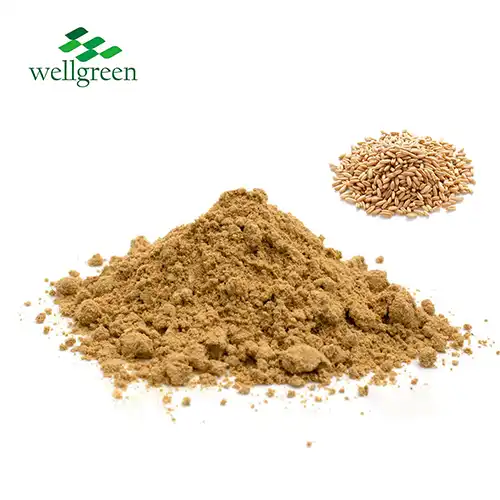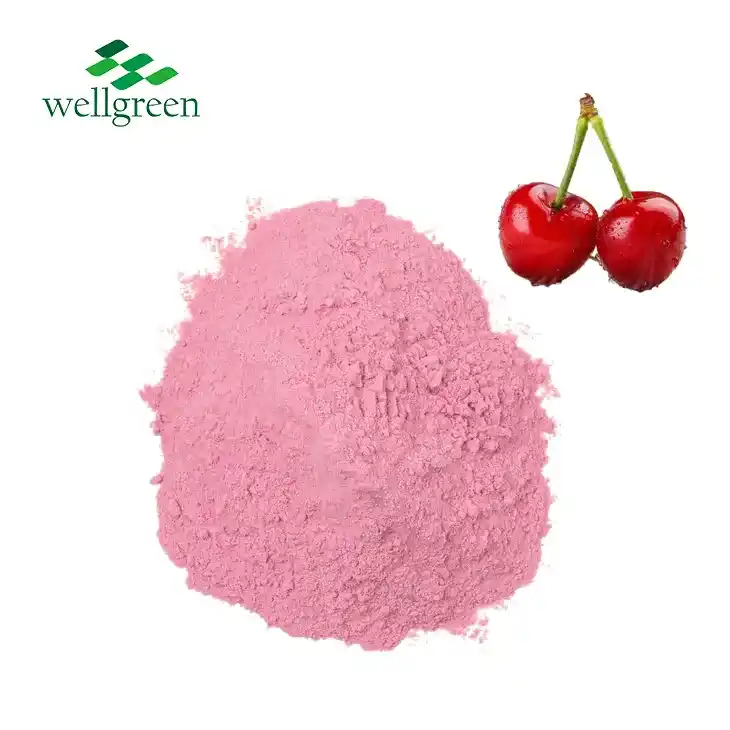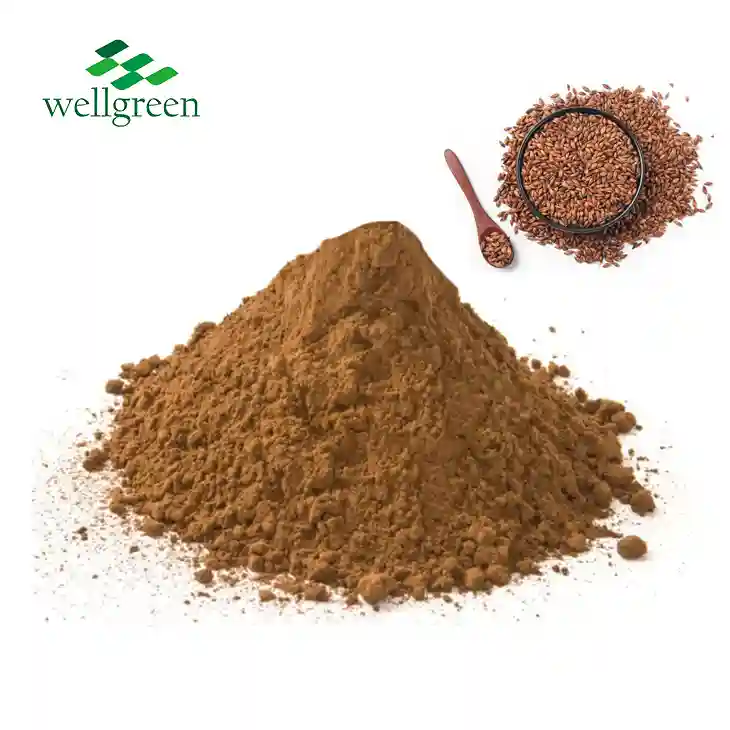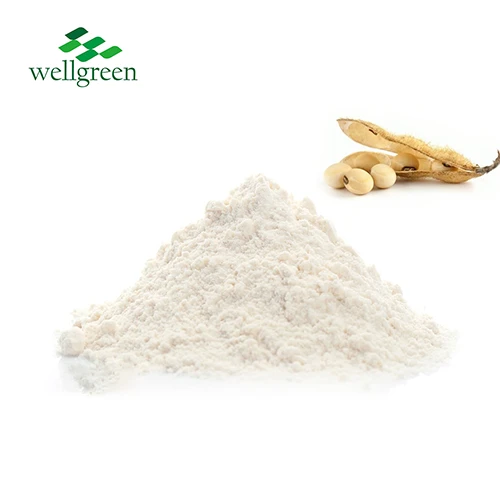Broccoli Seed Extract in Anti-Aging and Longevity Supplements
2025-09-25 10:07:56
Broccoli seed extract has emerged as a potent ingredient in anti-aging and longevity supplements, offering a natural approach to combat the effects of time on our bodies. This powerful extract, derived from Brassica oleracea seeds, is rich in sulforaphane, a compound known for its remarkable antioxidant and anti-inflammatory properties. As we delve into the world of cellular health and aging, broccoli seed extract stands out for its ability to activate cellular defense mechanisms, protect against oxidative stress, and support overall well-being. Its inclusion in anti-aging regimens is backed by scientific research, highlighting its potential to enhance skin health, boost cognitive function, and promote longevity at a cellular level. Let's explore how this humble vegetable extract is revolutionizing the approach to aging gracefully and maintaining vitality well into our later years.
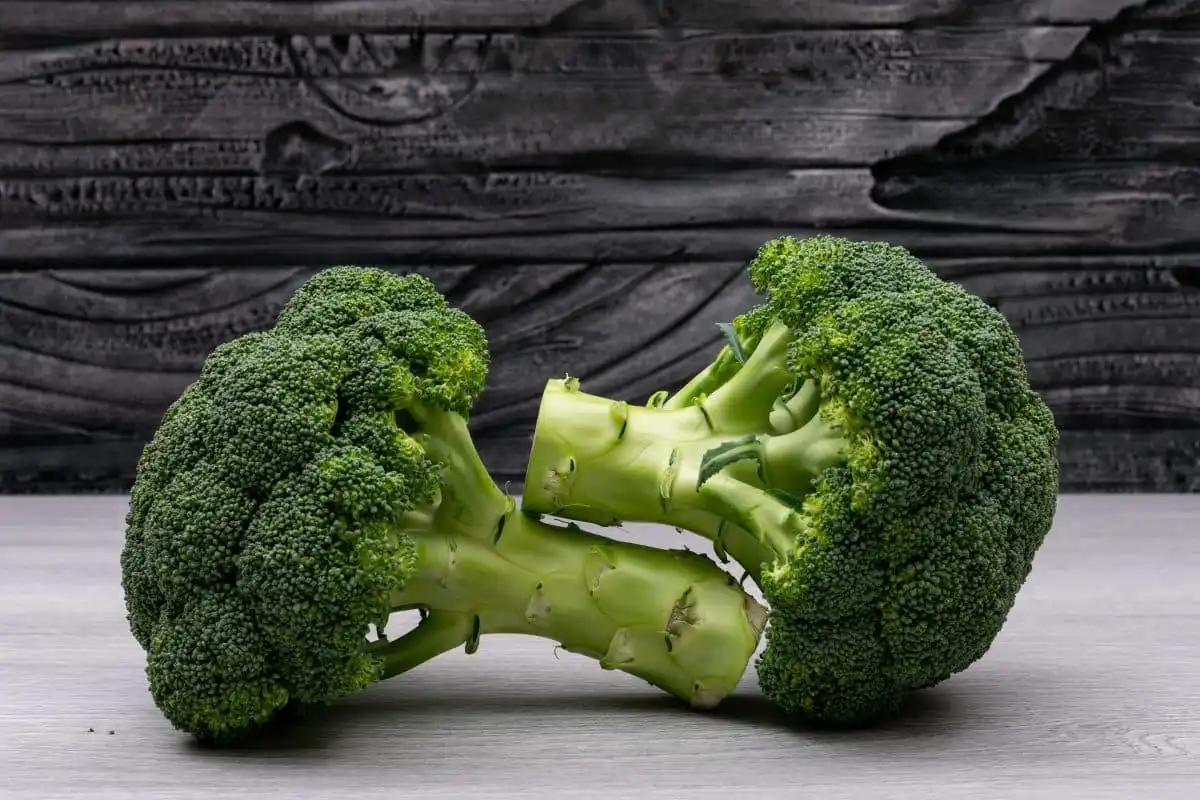
How Broccoli Seed Extract Contributes to Cellular Longevity?
Activating Nrf2 Pathway for Enhanced Cellular Defense
Broccoli seed extract plays a crucial role in activating the Nrf2 pathway, a key regulator of cellular defense mechanisms. This activation triggers the production of antioxidant enzymes, effectively bolstering the cell's ability to combat oxidative stress. By enhancing this natural defense system, broccoli seed extract helps protect cells from damage caused by free radicals, environmental toxins, and other stressors that accelerate aging.
Sulforaphane: The Powerhouse Compound
At the heart of broccoli seed extract's anti-aging properties lies sulforaphane, a potent bioactive compound. Sulforaphane has been shown to have remarkable effects on cellular longevity. It stimulates the production of glutathione, often referred to as the body's master antioxidant, which plays a vital role in detoxification and cellular protection. This compound also supports mitochondrial function, enhancing energy production within cells and promoting overall cellular health.
DNA Protection and Repair Mechanisms
One of the most significant contributions of broccoli seed extract to cellular longevity is its ability to protect and repair DNA. Oxidative stress can lead to DNA damage, a key factor in aging and age-related diseases. The compounds in broccoli seed extract, particularly sulforaphane, have been shown to upregulate genes involved in DNA repair processes. This protection against genomic instability is crucial for maintaining cellular integrity and prolonging the lifespan of healthy cells.
Role of Antioxidants in Slowing the Aging Process
Combating Free Radical Damage
Antioxidants play a pivotal role in slowing the aging process by neutralizing free radicals. These unstable molecules can cause oxidative stress, leading to cellular damage and accelerated aging. Broccoli seed extract, rich in antioxidants, effectively scavenges free radicals, reducing their harmful effects on cells and tissues. This protective action helps maintain cellular health and function, contributing to a slower aging process at the molecular level.
Supporting Cellular Metabolism
The antioxidants found in broccoli seed extract, particularly sulforaphane, support healthy cellular metabolism. By improving mitochondrial function, these compounds enhance energy production within cells. This metabolic boost not only supports overall vitality but also helps in the efficient removal of cellular waste products. Improved cellular metabolism translates to better tissue function and regeneration, key factors in maintaining a youthful appearance and internal health.
Enhancing Skin Health and Appearance
When it comes to visible signs of aging, skin health is paramount. The antioxidants in broccoli seed extract contribute significantly to skin health by protecting against UV damage, reducing inflammation, and supporting collagen production. These actions help maintain skin elasticity, reduce the appearance of fine lines and wrinkles, and promote a more youthful complexion. The extract's ability to combat oxidative stress in skin cells makes it a valuable ingredient in both topical and internal anti-aging formulations.

Integration of Broccoli Seed Extract in Anti-Aging Regimens
Optimal Dosage and Supplementation Strategies
Integrating broccoli seed extract into anti-aging regimens requires consideration of optimal dosage and supplementation strategies. While individual needs may vary, research suggests that a daily dose of 30-50 mg of sulforaphane from broccoli seed extract can provide significant health benefits. It's important to choose high-quality supplements that ensure the bioavailability of active compounds. For maximum efficacy, broccoli seed extract supplements are often recommended to be taken with meals to enhance absorption.
Synergistic Effects with Other Anti-Aging Compounds
Brassica oleracea seed extract can be particularly effective when combined with other anti-aging compounds. Its antioxidant properties complement those of vitamins C and E, creating a more comprehensive defense against oxidative stress. When paired with omega-3 fatty acids, the anti-inflammatory effects are enhanced, potentially offering greater protection against age-related inflammation. Some regimens also combine broccoli seed extract with resveratrol or coenzyme Q10 for a multi-faceted approach to cellular health and longevity.
Lifestyle Factors to Enhance Efficacy
To maximize the benefits of broccoli seed extract in anti-aging regimens, certain lifestyle factors should be considered. A balanced diet rich in whole foods, regular exercise, adequate sleep, and stress management all play crucial roles in supporting the extract's efficacy. Hydration is also key, as it helps in the absorption and distribution of nutrients throughout the body. Additionally, minimizing exposure to environmental toxins and UV radiation can enhance the protective effects of broccoli seed extract, contributing to a more comprehensive anti-aging strategy.
Conclusion
Broccoli seed extract stands as a powerful ally in the quest for longevity and youthful vitality. Its unique ability to activate cellular defense mechanisms, combat oxidative stress, and support overall health makes it a valuable component of modern anti-aging regimens. As research continues to unveil its benefits, broccoli seed extract is poised to play an increasingly significant role in promoting healthier aging. By harnessing the power of this natural compound, individuals can take proactive steps towards maintaining cellular health and vitality, potentially extending both lifespan and healthspan.
Contact Us
Are you looking to incorporate high-quality broccoli seed extract into your product line? Xi'an Wellgreen offers premium Brassica oleracea seed extract and broccoli sprout extract, perfect for anti-aging and longevity supplements. As a leading manufacturer and supplier, we ensure top-notch quality, GMP-certified production, and comprehensive support. For more information or to request a quote, contact us at wgt@allwellcn.com. Partner with Xi'an wellgreen for your broccoli seed extract supply needs and elevate your anti-aging product offerings today!
References
1. Fahey, J. W., & Talalay, P. (1999). Antioxidant functions of sulforaphane: a potent inducer of Phase II detoxication enzymes. Food and Chemical Toxicology, 37(9-10), 973-979.
2. Dinkova-Kostova, A. T., & Kostov, R. V. (2012). Glucosinolates and isothiocyanates in health and disease. Trends in Molecular Medicine, 18(6), 337-347.
3. Riedl, M. A., Saxon, A., & Diaz-Sanchez, D. (2009). Oral sulforaphane increases Phase II antioxidant enzymes in the human upper airway. Clinical Immunology, 130(3), 244-251.
4. Shapiro, T. A., Fahey, J. W., Wade, K. L., Stephenson, K. K., & Talalay, P. (2001). Chemoprotective glucosinolates and isothiocyanates of broccoli sprouts: metabolism and excretion in humans. Cancer Epidemiology and Prevention Biomarkers, 10(5), 501-508.
5. Kensler, T. W., Egner, P. A., Agyeman, A. S., Visvanathan, K., Groopman, J. D., Chen, J. G., ... & Talalay, P. (2013). Keap1–nrf2 signaling: a target for cancer prevention by sulforaphane. Topics in Current Chemistry, 329, 163-177.
6. Egner, P. A., Chen, J. G., Wang, J. B., Wu, Y., Sun, Y., Lu, J. H., ... & Kensler, T. W. (2011). Bioavailability of sulforaphane from two broccoli sprout beverages: results of a short-term, cross-over clinical trial in Qidong, China. Cancer Prevention Research, 4(3), 384-395.

